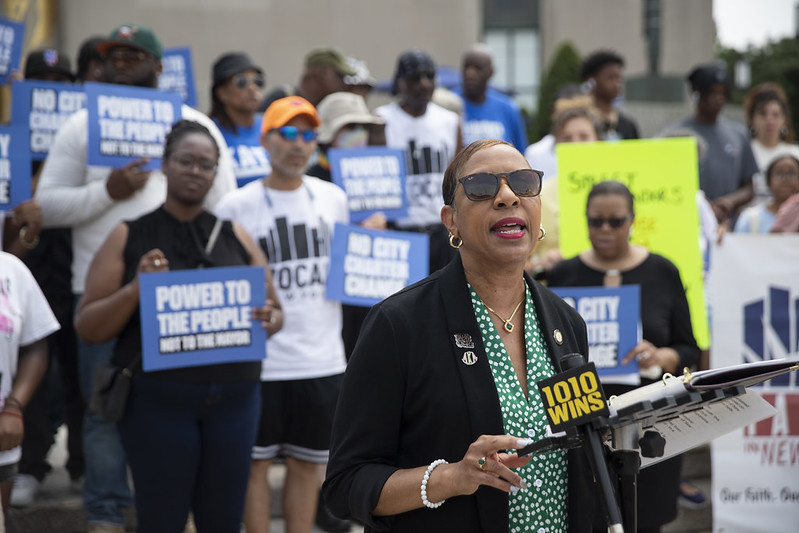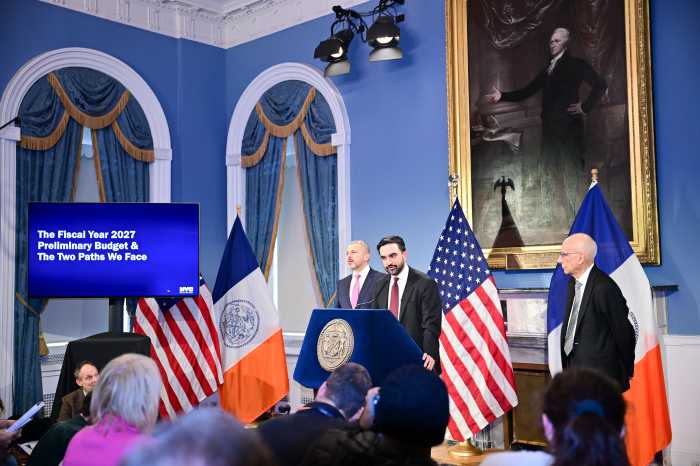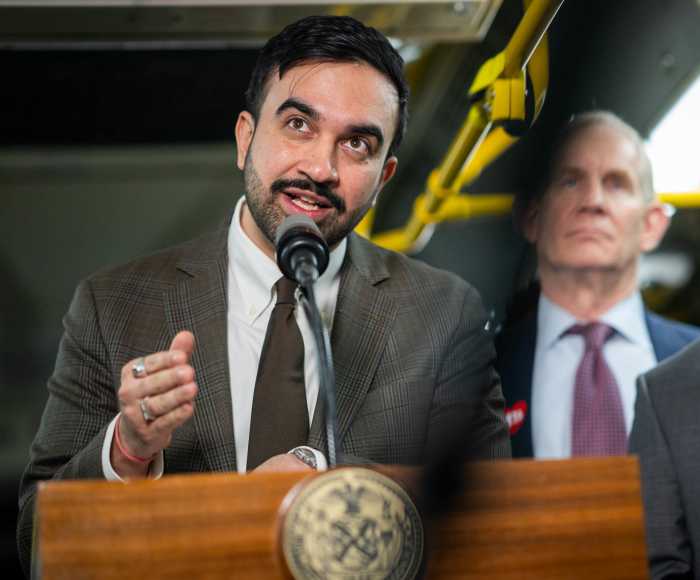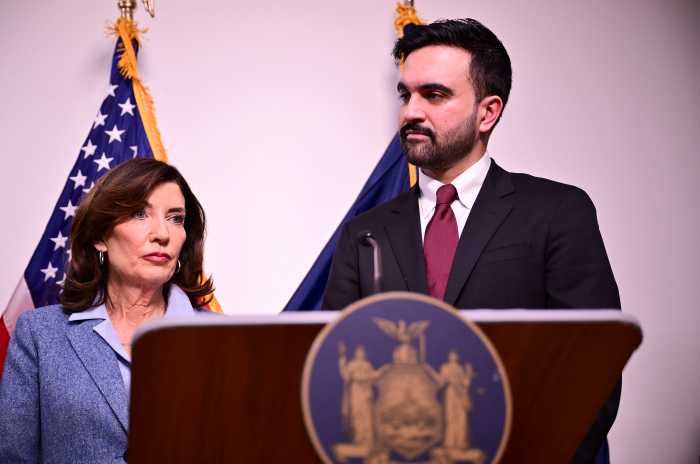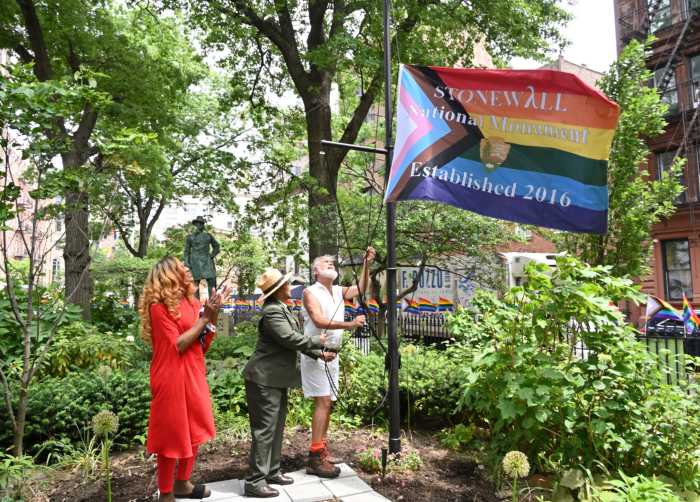It began with, of all things, a City Council effort to check mayoral power. It ended with the City Council getting checked itself — along with the power of the New York voter.
The City Council’s effort to expand its “advice and consent” power to interview and confirm mayoral appointees had been set to come before the city’s electorate this November with a ballot referendum. But that effort came to a crashing halt Thursday when the Charter Revision Commission, which Mayor Eric Adams had called, approved five other ballot questions of its own — including two that seek to check the City Council’s legislative power.
Thanks to a quirk in the City Charter itself, the proposals of the commission (convened by the mayor, and full of his appointees) superseded the advice-and-consent question of the Council (elected by the people of New York City). The commission’s ballot proposals will be voted on in November; the Council advice-and-consent proposal is now in limbo.
Ahead of and after the commission’s vote, the City Council wailed and gnashed their teeth. Speaker Adrienne Adams went as far as to call it “a dangerous attempt to shift power away from the people represented by the City Council to one single individual” — that individual, of course, being the mayor of New York City.
“Do you want a king?” Speaker Adams asked ahead of the commission vote on July 25.
Mayor Adams insisted that the commission “carefully examined our city’s Charter, heard from residents across all five boroughs, and approved thoughtful ballot proposals” which New Yorkers will vote up or down upon this November, when plenty of attention will be focused on the presidential race. The City Council says it will campaign vehemently against the commission’s questions, largely as a matter of principle.
Effective checks and balances are essential to the success of any democratic government. Power must be shared as equally as possible between the executive and the legislative branches. Tipping the scales in either branch’s favor only permits dysfunction, and disenfranchisement of the voice of voters.
The City Council is right to desire more say in vetting and approving mayoral appointments to head departments such as Buildings, Sanitation and Social Services. The mayor is also right to expect that the City Council further analyze cost expectations for certain legislation before rushing to judgment.
The Charter Review Commission’s failure to include the Council’s advice-and-consent question in its ballot proposals only bolsters the Council’s argument that the mayor’s gambit was merely about politics, not the best interest of the people.
New Yorkers ought to be able to answer all six questions this November — all of the commission’s proposals, and the advice-and-consent matter. The fact that New Yorkers won’t be able to is an egregious error that weakens the city as a whole.
Editor’s note: An earlier version of this editorial incorrectly stated that the City Council’s advice and consent bill would include the Police and Fire Departments. We regret the error, and any confusion which may have resulted.
Read More: https://www.amny.com/editorial/



